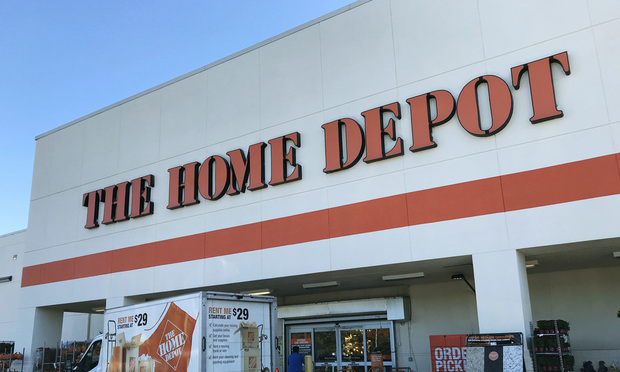(Bloomberg) – The experience is familiar to anyone who regularly cooks at home: You're at the supermarket picking up ingredients for tonight's dinner, but you simply cannot remember if you already have heavy cream.
You do remember buying it, so you skip it at the store and pat yourself on the back for saving a few bucks and not contributing to society's insane food waste problem. Then you get home and discover: Yes, you have heavy cream, but it's expired. Guess you're not making that fancy dessert you had planned.
But what if you could actually see the contents of your fridge from the supermarket aisle?
This is one solution that Innit Inc., a Silicon Valley-based technology company, hopes to provide busy home cooks through its Connected Food platform. The technology is currently on display at Pirch in SoHo, an appliance store that encourages shoppers to play with everything on display, from sinks to showers, which opened this past weekend in New York.
"Intelligence layer on top of appliances"
Kevin Brown, Innit's chief executive officer and co-founder, describes it as an "intelligence layer on top of appliances," meaning that select kitchen tools will come with Connected Food technology already embedded. For those looking to upgrade non-WiFi equipped fridges and ovens, there are a few options, but a visit to the hands-on, brightly colored Pirch showroom without buying a new appliance will require a fair amount of restraint. The cost of the hardware used with Innit's cloud technology — the cameras and sensors that connect you to your kitchen — will start at around $20 to $30 when the line goes on sale in 2017, though final retail pricing hasn't been announced.
When everything is installed, simply download an app onto your iPhone or iPad, and voila: a live feed from inside your refrigerator.
On top of showing you what's already in your fridge, Innit will tell you what you can make with those ingredients by pulling data from a trove of thousands of recipes from the New York Times, Bon Appétit, Good Housekeeping, and Epicurious. It'll even help you place an order for items you're missing, though the company has yet to announce the partnerships that will provide this service.
Simplify cooking with technology
The oven technology can "sense" what's inside and tell you how to cook it, down to the right time and temperature, depending on the food's weight, the oven model, and the kitchen's altitude. If you want to install cameras in your ceiling or in the bottoms of your cabinets, it can also watch you put your carrots on a cutting board and then tell you that they are, in fact, carrots while it plays a video of you chopping said carrots back to yourself while simultaneously giving you carrot recipes from the aforementioned trove.
Innit is hardly the first company to try to simplify cooking by adding complicated technology. Samsung Electronic Co.'s Family Hub fridge also tells you what's inside it while simultaneously connecting family members' calendars and playing "your favorite tunes." The Gourmia Robotic Cooker is just one of many kitchen robots awaiting your instruction. And pod pioneer Keurig Green Mountain Inc. was one of the earliest to convince the masses that extra technology is necessary to make coffee—one of the simplest beverages in our modern diet.
Laith Murad, Pirch's chief marketing officer, called the technology "empowering," saying it is "going back to the roots of human to human experiences." (The Innit website similarly describes its mission as "to empower humanity through food.") Brown explained how a cook may want to invite friends over for a dinner party, gather around a screen, choose a recipe and make it together, with the technology serving as a "conversation piece" that could also "make cooking fun."
Related: Hacking the connected world: (Downright scary) implications for insurers
While Innit certainly has some major conveniences, waiting until your guests arrive to start making their dinner will probably make you feel the opposite of empowered, and gathering around a screen hardly foments human-to-human interactions. (If you're turning to recipe selection to start a conversation, you might just need more interesting friends.)
Some people may also wonder if giving the amorphous, all-knowing cloud even more personal information is really a good idea, even if Innit says its approach "will be to provide consumers with maximum control over their personal information." Thousands of recipes at your fingertips sounds good — until you realize that you already have access to most, if not all of them, either through Pinterest, the publications' websites, or their own apps. And anyone that uses the kitchen for more than just cooking may wonder if cameras in the ceiling are really such a great idea.
Still, in today's age of information sharing, when tracking everything from steps to menstrual cycles is just part of a daily routine, maybe the trade-off — perfectly baked salmon, every single time — is worth it.
Want to continue reading?
Become a Free PropertyCasualty360 Digital Reader
Your access to unlimited PropertyCasualty360 content isn’t changing.
Once you are an ALM digital member, you’ll receive:
- Breaking insurance news and analysis, on-site and via our newsletters and custom alerts
- Weekly Insurance Speak podcast featuring exclusive interviews with industry leaders
- Educational webcasts, white papers, and ebooks from industry thought leaders
- Critical converage of the employee benefits and financial advisory markets on our other ALM sites, BenefitsPRO and ThinkAdvisor
Already have an account? Sign In Now
© 2025 ALM Global, LLC, All Rights Reserved. Request academic re-use from www.copyright.com. All other uses, submit a request to [email protected]. For more information visit Asset & Logo Licensing.








